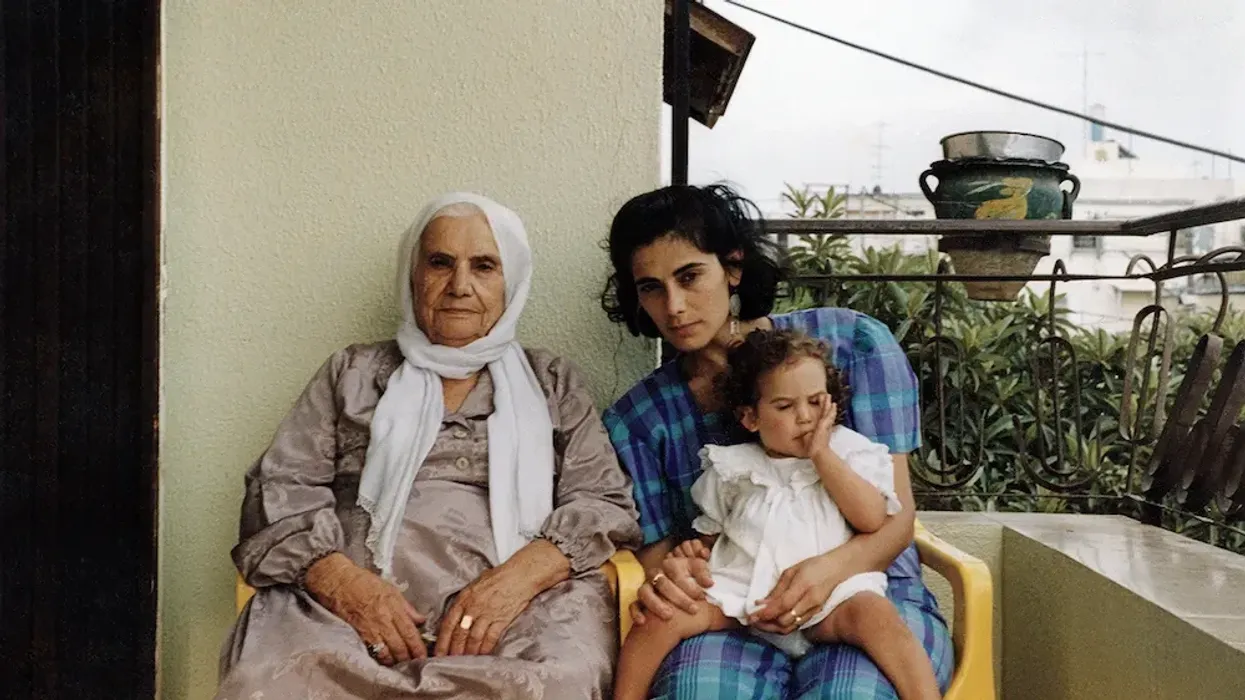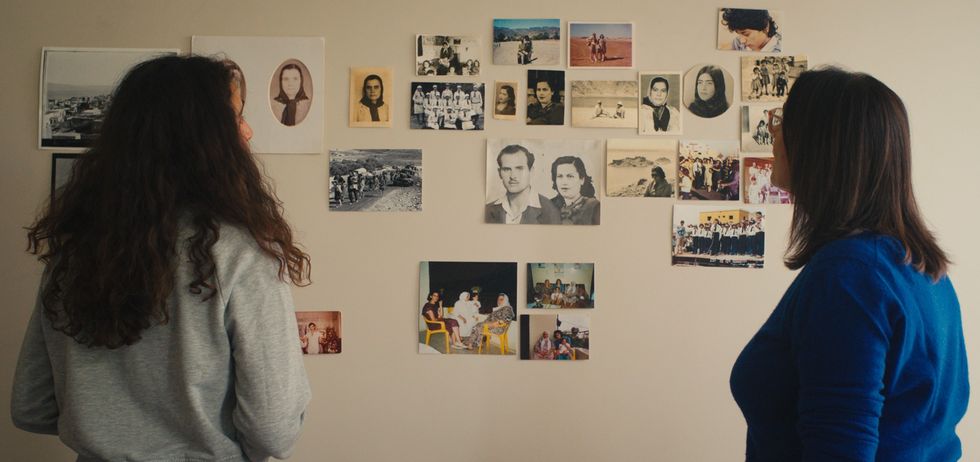How Does a Woman Find Her Place When Caught Between Worlds?
Everything I experienced with my first film, Their Algeria, led me to Bye Bye Tiberias.

Bye Bye Tiberias
Written by Lina Soualem
I was born and raised in Paris to a Palestinian mother born in Galilee and to an Algerian father born in Central France.
Both my parents are actors. My father comes from a family of Algerian workers who immigrated from Algeria to France in the 1950s, during the French colonization of Algeria. He started working as a street mime at the age of 18 and soon established himself as an actor in French cinema. Born in a Palestinian family of ten children, my mother made her debut as an actress in the National Palestinian Theatre, Hakawati, in Jerusalem and then embraced an international career due to the roles she has played in Arab films as well as European and American cinema.
After studying History and Political Science at La Sorbonne University, I started working as a programmer in film festivals, looking to combine my interests in cinema and history. After obtaining my master's degree, I worked for a Human Rights Film Festival in Buenos Aires for two years. That is when I discovered documentary filmmaking.

I have written and directed two films, Their Algeria (r2020) and Bye Bye Tiberias, which premiered at the Venice Film Festival in 2023 and is currently released internationally in festivals and theaters.
In Their Algeria, I explore the story of the exile of my Algerian paternal grandparents Aicha and Mabrouk, who immigrated from Algeria to France in the 1950’s and divorced after 62 years of marriage. Bye Bye Tiberias, tells the story of four generations of daring Palestinian women, the women of my maternal family, who carry their memory through the power of their relationships with each other, despite dispossession and displacement.
Everything I experienced with my first film, Their Algeria, led me to Bye Bye Tiberias. Both films explore exile and transmission, how information gets passed down through generations. On the Palestinian side of my family, we survive through speaking; passing on our story is central. On the Algerian side, silence is preferred; we hide our truths deep within us. It’s for this reason I had to make Their Algeria first. I needed to break the silence to reconcile us with our past and to reconstitute and reclaim our history. With Bye Bye Tiberias, it felt like I was making a film as an adult woman who has the experience and courage to tell a story about strong Palestinian women.
I didn’t think I would ever have the courage and strength to tell intimate personal stories about the women of my family against the backdrop of this collective tale of an unrecognized Palestine. However, the process of making the first film and the positive reception from audiences gave me the confidence to tackle my maternal family’s story.
BYE BYE TIBERIAS Trailer | TIFF 2023www.youtube.com
The making of Bye Bye Tiberias commenced in 2018 and ended in 2023. The writing, shooting, and editing were not linear in the sense that I would write, film, start editing, and then go back to filming and rewriting. It also took time to collect the diverse sources of images that compose the film: images from today, family archives from the 90s, and historical archives from the 40s.
As a descendant of immigrants, I wanted to undertake the urgent yet daunting task of addressing the questions of colonial trauma, exile, and transmission through creative writing, building imaginary territories, and unpicking and documenting the indelible suffering of exiled individuals. Exile, this trip from the known to the unknown, from the familiar to the foreign, is often experienced with the hope that moving will only be a parenthesis before coming back to a sense of “normalcy” in a life that was brutally interrupted. But for most, exile is irrevocable.
Being in exile is also living in a world of ghosts and echoes, of resonance and discord, a world torn between the past and the present, between here and elsewhere.
Where do we come from? What is family? What are we? These are the key questions that echo throughout my work as a documentary filmmaker and writer and that I want to keep exploring throughout my work. I want to seize the personal, historical, and visual legacies that have been offered to me by heritage. I aim to question these legacies, to confront them, to knit the bonds between them to answer the question that is tormenting me: how does an exiled person find its place in the world? How does a woman find her place when caught between worlds?
What is at stake in my work is not to judge and condemn histories but rather to retell a story from an intimate and personal perspective and show the need for knowing one's history, however dark and ominous it may be.
- New Wave Crash Course: Agnès Varda’s Personal Film School ›
- Making a Successful First-Person Film in the Golden Age of Personal Storytelling ›











